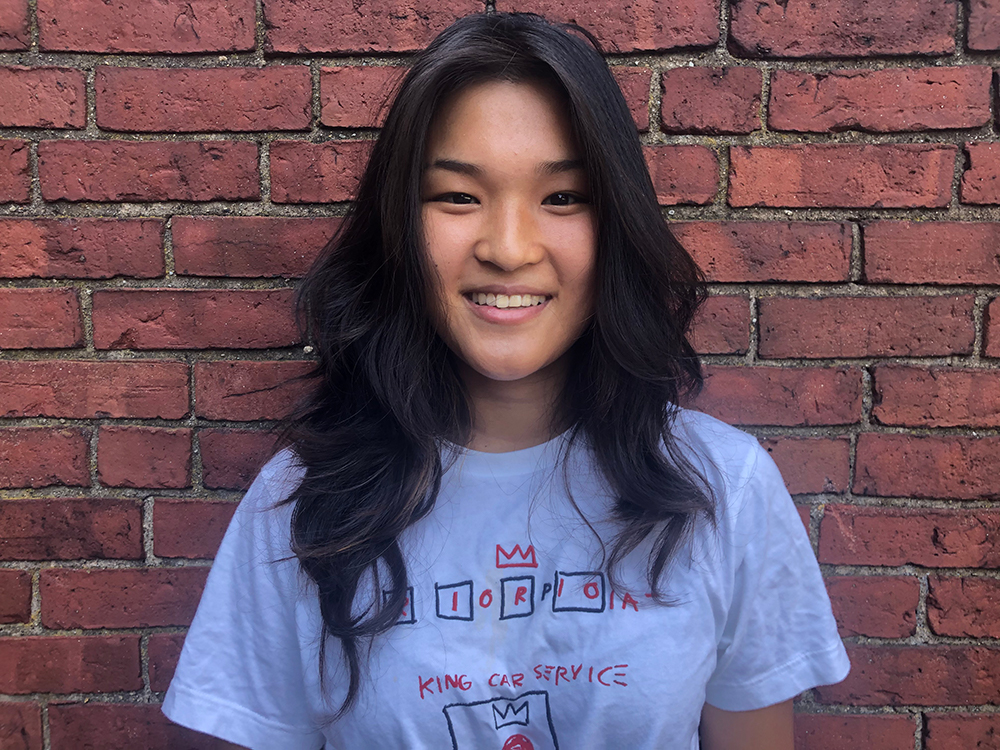I’m no One Directioner, but even I admit that “What Makes You Beautiful” is a pretty catchy song.
I remember holding the lyrics very close to my heart when I was younger: “You don’t know you’re beautiful / That’s what makes you beautiful.” At nine years old, I adored the love song.
I am now a young adult and I must admit, I have some massive beef with what the boy band was trying to say.
“Don’t be like other girls,” One Direction said, albeit not verbatim. “You’re insecure, I don’t know what for, but I like that about you.”
This song, authority figures, mainstream culture and the patriarchy — in no particular order — all taught me the same sentiment: as a woman, it is not my place to know my own self-worth.
I was taught that it’s not a good look to be vocal about my worth. If I’m too ambitious, I am being “that b—-.” If I’m too confident, then I’m full of myself and need to take it down a notch.

I recall a friend who had a very specific and memorable response to compliments. She always said, “Thanks, I do too.”
“I like your shirt!”
“Thanks, I do too.”
“I think you are such a cool person!”
“Thanks, I do too.”
And why not, right? It seems so simple. Someone who literally purchased and chose to wear their own shirt should be able to admit that they like it. Isn’t that why they wore it in the first place?
But that’s not the expected answer. For whatever ridiculous reason, we aren’t supposed to know that our shirt looks cool.
It seems as if our response must be, “Oh, this one? I didn’t even notice when I pulled it out of the drawer and over my head. I’m so spacey sometimes. I’m so grateful for your compliment! Now I know that my shirt is cool.”
In the culture I grew up in, it’s an act of rebellion to be self-confident on my own terms.
According to the terms I abide by, I can be confident. Confidence is attractive. Wait, but not that confident. Who do you think you are? I can sure be humble. Humility is cute. Wait, but not that humble. You can’t go fishing for compliments.
Women celebrate each other for wearing pantsuits, dying their hair a crazy color and achieving ambitious goals. Sometimes, we don’t want to care if it goes against societal norms. For one ephemeral moment, we can feel like we aren’t controlled by what society has to say.
For example, my friend shaved her head the other day and I couldn’t be happier.
We forget that the expectations we place on women are being placed on very real people. The consequences of those expectations are clear. A 2016 Dove survey discovered that 60 percent of women feel pressured to meet beauty standards.
The Pew Research Center found in 2018 that 60 percent of women believe gender discrimination inhibits female leadership — women represent only 5 percent of Fortune 500 CEOs, according to the Center for American Progress.
As much as we don’t want to be, women are still very dependent on men in order to succeed.
Can you understand now, from my point of view, why I internally screamed with joy when my friend shaved her head? Can you understand why I feel the need to apologize before speaking in any and all professional environments?
We should start collectively celebrating and appreciating the miniature rebellion that women secretly initiate every time we stand up for ourselves — this half of the population has a lot to share and not a lot of leeway to share it.
Don’t you think that’s amazing? Because thanks! I do too.



















































































































